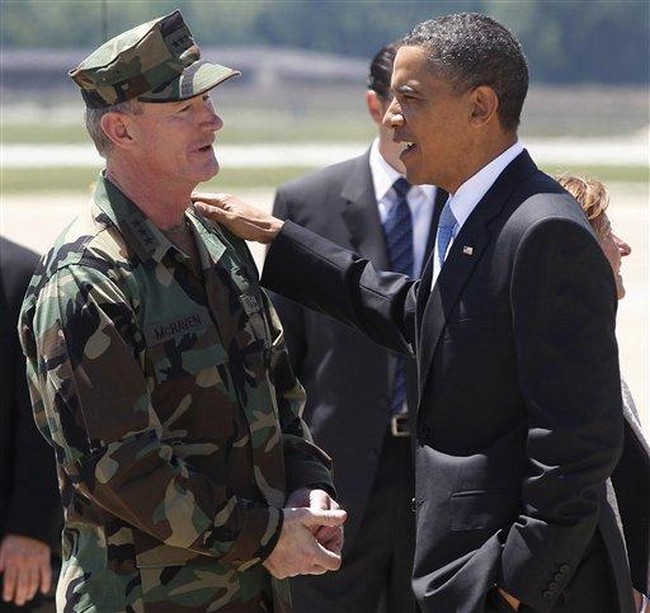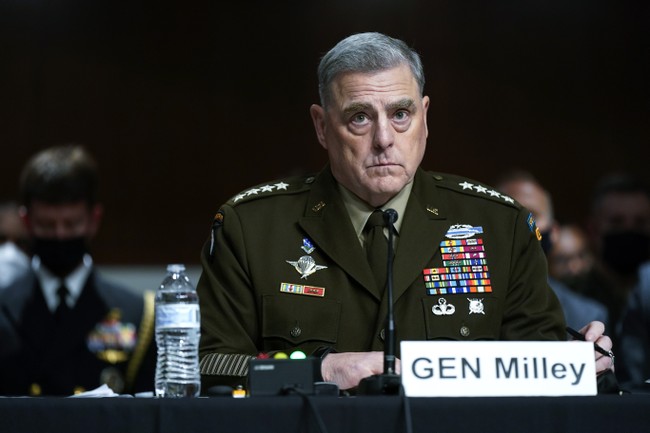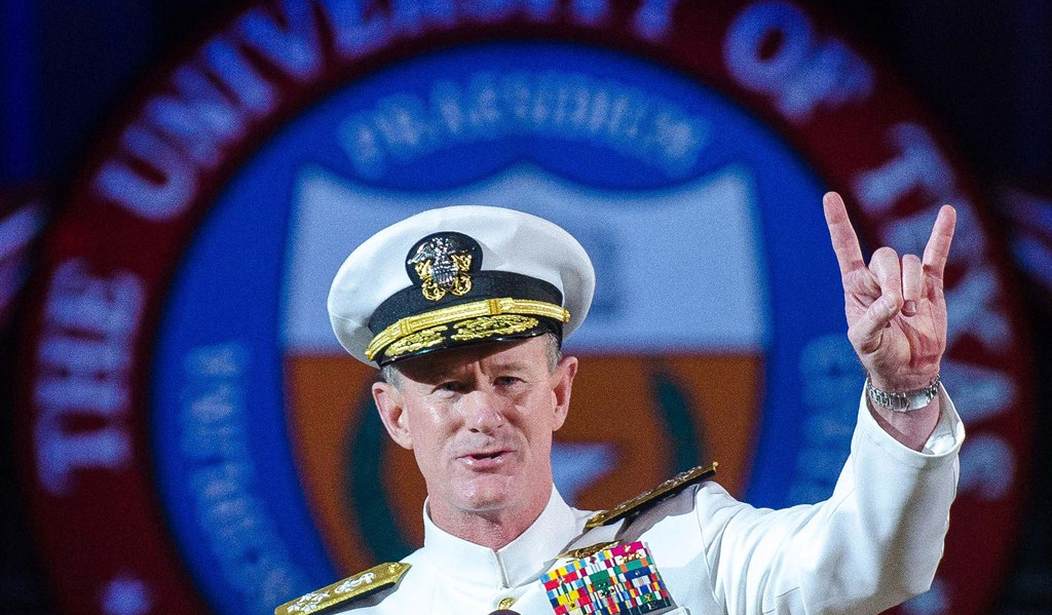The leftwing media is spinning up the threat to Democracy posed by President Donald J. Trump and his supporters as Americans approach the Nov. 5 election day, and the polls show Trump leading in battleground states and the popular vote polling.
In an incredible demonstration of their capabilities, the left has spun four criminal cases against the president, two federal, one in Fulton County, Georgia, and another in Manhattan, New York.
Many of the same players behind the anti-Trump lawfare are also tied to the 2020 Transition Integrity Project, such as Norm Eisen, and many of the participants were not only public about their participation but promoted the project in the media.
What needs to be explored is the connection between the military and national security community, personnel who actively opposed Trump in the 2020 cycle, and TIP — and what their function is opposing Trump in the 2024 cycle.
In TIP’s final report, the military is a peripheral consideration, and it was a concern only to the extent that project members feared the military would be loyal to Trump and unwilling to back the swearing-in of former Vice President Joseph R. Biden Jr.
After the Jan. 6, 2021, Capitol Hill protests, the left and their media allies highlighted current and veteran military personnel on the Hill that day, and that emphasis alluded to these individuals as part of a threat from within.
After Biden’s successful inauguration, the new Pentagon leadership under Defense Secretary Lloyd J. Austin III almost immediately ordered units to stand down and to identify military personnel guilty of extremism.
This was an effort to get a handle on the political threat within the military from personnel who might not be the backstop to the left’s dicta.
Following the principle of leftwing projection, if the left is looking for Trumpian malefactors, chances are they would have their own actors on the inside.
In the meantime, it is essential to identify the military leaders who opposed Trump and work their connections back to TIP 2.0 and other 2024 efforts to block or disrupt the president’s election and or return to the White House.
Admiral William H. McRaven
No other retired high-ranking officer took on Trump like Adm. William H. McRaven, who led Special Operations Command and personally supervised the Bin Laden raid.
This made it more shocking that McRaven would criticize Trump so as to create a permissive environment for a mutiny against Trump or even his assassination.

The admiral, serving as the University of Texas chancellor, told students Feb. 20, 2017, at the Moody School of Communications, that Trump’s criticisms of the press were a significant problem. “The president said the news media is the enemy of the American people. This sentiment may be the greatest threat to Democracy in my lifetime.”
The admiral was just getting started.
Less than two years into Trump's term, McRaven signaled his continued opposition to Trump with his Aug. 16, 2018, op-ed in The Washington Post, “Revoke my security clearance, too, Mr. President.”
McRaven wrote that he was angry that Trump revoked the security clearance of Obama’s CIA director, John Brennan. “Therefore, I would consider it an honor if you would revoke my security clearance as well so I can add my name to the list of men and women who have spoken up against your presidency.”
In October 2019, just after Speaker Nancy Pelosi (D-Calif.) launched her impeachment procedures against Trump, McRaven told CBS News Chief Washington Correspondent Major Garrett on his “The Takeout" podcast that Trump has a loose association with the truth and he needed to be held accountable.
The admiral also told Garrett that he had respect for other presidents, such as Obama and President George W. Bush, but not for Trump. “I know that the things that he has done has not really comported with the dignity of the office of the president of the United States.”
McRaven’s next shot at Trump, “Our Republic Is Under Attack From the President,” which ran Oct. 17, 2019, in The New York Times, was not so much in support of impeaching Trump but ousting him, literally creating a permissive environment for someone to take action — and remember, this is the man whose SEALs took out Bin Laden calling out an enemy of the Republic.
In case the reader did not get the message, McRaven shared an episode he said took place at the Army base now called Fort Liberty, North Carolina, home of the airborne and special forces.
As I stood on the parade field at Fort Bragg, one retired four-star general grabbed my arm, shook me, and shouted, "I don't like the Democrats, but Trump is destroying the Republic!"
Those words echoed with me throughout the week. It is easy to destroy an organization if you have no appreciation for what makes that organization great.
The admiral said Trump was not one of us. He was different from true Americans because he did not share the values that had made the country great.
And if this president doesn't understand their importance, if this president doesn't demonstrate the leadership that America needs, both domestically and abroad, then it is time for a new person in the Oval Office — Republican, Democrat, or independent — the sooner, the better. The fate of our Republic depends upon it.
The sooner, the better!
After the Senate acquitted Trump in his first impeachment, a staffer from the Office of the Director of National Intelligence met with the House Intelligence Committee, chaired by Rep. Adam Schiff (D.-Calif.), and she told the committee members that the intelligence community determined that Russia was working to reelect the president.
For context, recall House Democrats ran Trump’s just closed impeachment through the House Intelligence Committee.
The staffer, Shelby Pierson, was the ODNI’s first election threats executive, and Trump was so furious that Pierson would give such a briefing, which was not backed by solid intelligence, he fired her boss, the acting director retired Vice Adm. Joe Maguire.
Maguire’s firing brought McRaven back on the attack.
I have known Joe for more than 40 years. There is no better officer, no better man, and no greater patriot. He served for 36 years as a Navy SEAL. In 2004, he was promoted to the rank of rear admiral and was chosen to command all of Naval Special Warfare, including the SEALs. Those were dark days for the SEALs. Our combat losses from wars in Iraq and Afghanistan were the highest in our history, and Joe and his wife, Kathy, attended every SEAL funeral, providing comfort and solace to the families of the fallen.
McRaven escalated his attack, describing Trump not just as a threat to the Republic but now, for the crime of firing his friend, Trump was evil.
As Americans, we should be frightened — deeply afraid for the future of the nation. When good men and women can’t speak the truth, when facts are inconvenient, when integrity and character no longer matter, when presidential ego and self-preservation are more important than national security — then there is nothing left to stop the triumph of evil.
The admiral did not seem to grasp why the president would be angry that someone in his administration would tell his political enemies the unsupported finding that the Russians were working to keep him in office.
By the summer of 2020, it was not a secret that McRaven had become the leading military critic of the president, but that did not stop the Pentagon from approving McRaven's June 23, 2020, virtual seminar on leadership at the Naval Post Graduate School.
In his one-hour presentation, which included questions from military graduate students from the different services, the admiral did not wander into politics, threats to the Republic, or evil. Yet, the Pentagon's sanction and promotion of the seminar was, in effect, an endorsement of the admiral's opposition to Trump.
The Transition Integrity Project’s military focus
The Transition Integrity Project was a George Soros-funded collection of leftwing lawyers, public intellectuals, and national security mandarins, which, in the Spring and Summer of 2020, plotted how to shoehorn former Vice President Joseph R. Biden Jr. into the White House — and block President Donald J. Trump from a second term.
In his recent Substack article, “Is the Electoral Fix Already In?,” investigative journalist Matt Taibbi wrote that Trump's return from exile triggered TIP participants to bring the band back together.
TIP was a confluence of two sister organizations, Democracy Forward, run by erstwhile Perkins Coie law firm partner and general counsel to the 2016 Hillary Clinton presidential campaign, Marc E. Elias, and Protect Democracy, co-founded by a former White House attorney for President Barack H. Obama Jr., Ian Bassin.
One of the concerns of the TIP members was that after the military quickly and effectively responded to the 2020 George Floyd riots, it would have a loyalty to Trump that could foil its own efforts to lawfare him out of office.
Concerns about the District of Columbia National Guard’s loyalty to Trump, who was its commander, because there is no governor, may have contributed to Army leaders delaying that force Jan. 6, 2021.
Other prominent military Trump opponents
Retired Maj. Gen. Paul Eaton is a senior advisor to VoteVets, a political action committee that supports progressive veterans and national security professionals.
Eaton, who served in the 10th Mountain Division with Austin, participated in TIP's election and transition wargaming.
I just participated in a war game with a nonpartisan group, the Transition Integrity Project. The mission was to identify election/transition events during our coming Presidential election and the weeks following. Our Democracy WILL be protected by our most noble women and men.
— Major General (ret) Paul Eaton (@PaulDEaton52) July 6, 2020
It remained a concern for Eaton 11 months after the transition when he and two other military leftists retired Maj. Gen. Antonio Taguba and retired Brig. Gen. Steven M. Anderson posted Dec.17, 2021, an op-ed, “3 retired generals: The military must prepare now for a 2024 insurrection,” at The Washington Post.
The three general officers wrote that the refusal of the Oklahoma National Guard to enforce Biden’s COVID-19 vaccine military mandate was a dangerous sign that another national guard could go rogue.
They also called for a program for political surveillance of service members:
In addition, all military branches must undertake more intensive intelligence work at all installations. The goal should be to identify, isolate and remove potential mutineers; guard against efforts by propagandists who use misinformation to subvert the chain of command; and understand how that and other misinformation spreads across the ranks after it is introduced by propagandists.
Eaton, Taguba, and Anderson became politically active as retired generals, but the example of Gen. Mark A. Milley, the former Chairman of the Joint Chiefs of Staff. While still on active duty, Milley used his stature as the highest-ranking officer to instruct the senior Pentagon staff to route Trump's orders through him so he could decide whether to enforce the order.
Milley also called the leader of Red China's Peoples Liberation Army to assure him that Milley would give him the heads-up if Trump ordered an attack on Mainland China.

We need to know now who are the officers still on active duty, coordinating with Eaton and working on the inside to block Trump's return or undermine his second administration.
One of Milley’s predecessors, retired Gen. Martin E. Dempsey, whose Trump tweets have been deleted, argued that generals and admirals should not be political, as he subtweeted admonishments to Trump.
Dempsey even took a shot in 2018 at Trump’s creation of Space Force, but more importantly, he called out Trump for using the military to stop the George Floyd riots in Washington. This was the situation that convinced TIP members that the military could not be relied upon to turn on Trump.
Then, there is the case of USS John S. McCain (DDG-56), named for the admiral father and grandfather of the late Arizona Republican Sen. John S. McCain III. Before Trump’s May 2019 state visit to Japan, the White House asked the Navy to lower the profile of the destroyer.
Of course, the Navy rejected that request and went public with the request and its rebuke to the president.
Who is part of TIP 2.0?
There is no direct connection between McRaven and the Transition Integrity Project, but it is inconceivable that he was unaware of them or that they were unaware of him.
What were the conversations, if any?
In the last week of the 2020 election, nearly 800 signatories signed a letter under the letterhead of “National Security Leaders for Biden.”
The signatories included 22 retired four-star admirals and generals and five former defense secretaries.
Former senior Pentagon attorney Rosa Brooks was one of the TIP founders, but she told Taibbi she was not part of TIP 2.0.
Glad to see Nat Sec Action up and at 'em! https://t.co/0gvefgcGGf
— Rosa Brooks (@brooks_rosa) February 6, 2024
Yet, she is not on the sidelines either. In her Feb. 6 X-post, she saluted the reconstituted National Security Action political action committee, founded originally by current White House National Security Advisor Jake Sullivan and former Obama White House speechwriter and National Security Advisor Ben Rhodes in 2018.
Rhodes told Axios he rebooted the PAC because Trump is a threat to Democracy.
“You have to connect with things that people already are concerned about with Trump — he's chaotic, he only cares about himself, he is hostile to democracy — and you have to connect that to the things that are happening in the world,” he said to Axios.
It was a stunning demonstration of the opposition to Trump inside the military and the intelligence community because it was done without fear.
In 2020, we knew who the retired military personnel and the out-of-office national security civilians supporting Biden were, but we did not know who was on the inside.
In 2024, that is the challenge when it comes to understanding just how political the military has become and whether they have been activated for duty against Trump.













Join the conversation as a VIP Member